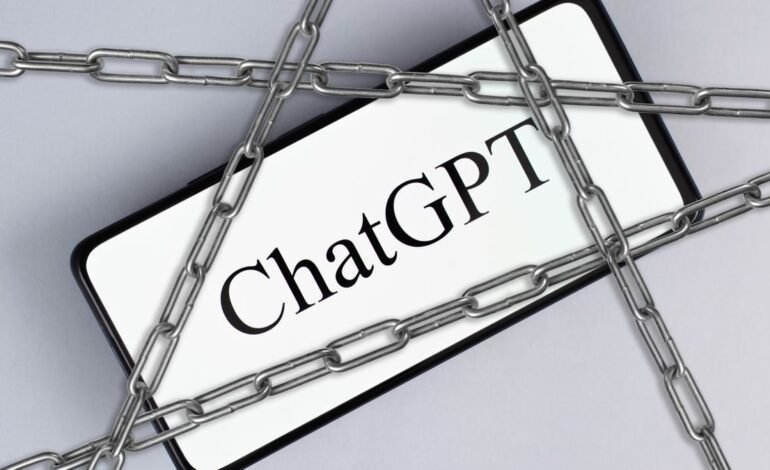
The High Cost of Courtesy: How Politeness to ChatGPT Impacts OpenAI’s Bottom Line
In the digital age of AI-driven interactions, even the smallest user habits can have big consequences. One such surprising revelation comes from OpenAI CEO Sam Altman, who recently stated that being polite to ChatGPT is costing OpenAI millions of dollars. At first glance, this might sound like satire—but it’s a real issue with profound implications for AI economics, system design, and user interaction.
Let’s explore how politeness is affecting OpenAI’s operational costs and what this means for the future of AI platforms like ChatGPT.
The Root of the Issue: Prompt Length and Processing Power
ChatGPT is a large language model (LLM) that processes input from users to generate human-like responses. Every message sent to ChatGPT—whether it’s a short command or a lengthy polite query—requires computing power to analyze, understand, and respond.
According to Sam Altman, people using phrases like “please,” “thank you,” or providing context with extra sentences inadvertently increase the length and complexity of the prompt. This means the model must work harder to generate an accurate response, consuming more tokens, and thus more processing power.
Since OpenAI’s infrastructure costs are largely driven by the number of tokens processed, increased prompt lengths due to politeness are quietly ballooning costs in the background.
What Are Tokens and Why Do They Matter?
Tokens are chunks of text—typically words or parts of words—that LLMs like GPT-4 process. For example:
- “ChatGPT” = 1 token
- “Thank you so much for your help today!” = ~10 tokens
Longer prompts mean more tokens. More tokens mean more computations, and more computations mean higher infrastructure usage—translating directly into financial cost for OpenAI.
Altman estimates that this unnecessary bloat in token usage has been adding millions to OpenAI’s server expenses annually.
The Psychology of Politeness in AI Interactions
Why are users so polite to ChatGPT in the first place?
Several psychological studies suggest that humans tend to anthropomorphize technology. When an AI model like ChatGPT responds in a human-like manner, people instinctively mirror natural social norms—like saying “please,” or “good morning.”
This behavior, while charming and wholesome, has unintended technical and financial implications. The more human we treat AI, the more it costs to run.
The Impact on OpenAI’s Business Model
OpenAI has made major strides with the ChatGPT platform, which now serves millions of users across free and paid tiers. However, keeping the system running efficiently is essential for scalability.
Here’s how politeness affects business operations:
- Increased Server Load: Longer prompts require more computational cycles per query.
- Reduced Efficiency: More resources are needed to handle a single user session.
- Higher Costs: For models trained to respond to long queries, infrastructure needs scale exponentially.
While token usage is a known factor in billing for API-based services, its impact on user behavior within free-tier services becomes a cost center for OpenAI—without direct revenue in return.
Is There a Solution?
To combat this issue, OpenAI is experimenting with new methods to reduce unnecessary token use:
- Prompt Optimization Education: Teaching users how to be concise can reduce the burden. A simple prompt like “Summarize this paragraph” is far cheaper than “Hello, I hope you’re doing well. Can you please help me summarize the following paragraph? Thanks in advance!”
- Built-in Prompt Shorteners: OpenAI could integrate automatic prompt simplifiers that strip out redundant language before processing the request.
- Token-Efficient Responses: Training models to recognize overly verbose prompts and provide concise replies could also help balance out the cost equation.
- Usage Warnings: For paid plans, showing token usage stats in real-time might incentivize more efficient prompting.
What This Means for Developers and Users
For businesses and developers integrating ChatGPT via API, understanding token usage has always been essential. But now, even casual users should consider how their phrasing affects not just their results but also the sustainability of the platform.
If OpenAI were to pass on increased operational costs due to verbosity, subscription prices could rise—or more stringent usage caps might be introduced.
Users might soon have to choose: be courteous or be cost-efficient.
The Broader Debate: Should We Care?
Some argue that teaching people to be less polite to AI could reinforce less empathy in human interactions. Others say AI should adapt to human behavior, not the other way around.
But at the core of this debate lies a more pressing question: how do we balance human-like interaction with computational sustainability?
As AI becomes an everyday tool for productivity, entertainment, and education, optimizing how we interact with it becomes just as important as what we do with it.
Final Thoughts
Politeness has always been free—until now. In a world where AI processing comes at a cost, even kindness can carry a price tag. Sam Altman’s revelation isn’t just a quirky footnote in the story of AI—it’s a real challenge for OpenAI and a call to action for users.
Whether you’re an API developer, a business relying on GPT, or just a friendly user saying “thanks,” it might be time to consider a more concise (yet still respectful) way to engage with AI.






